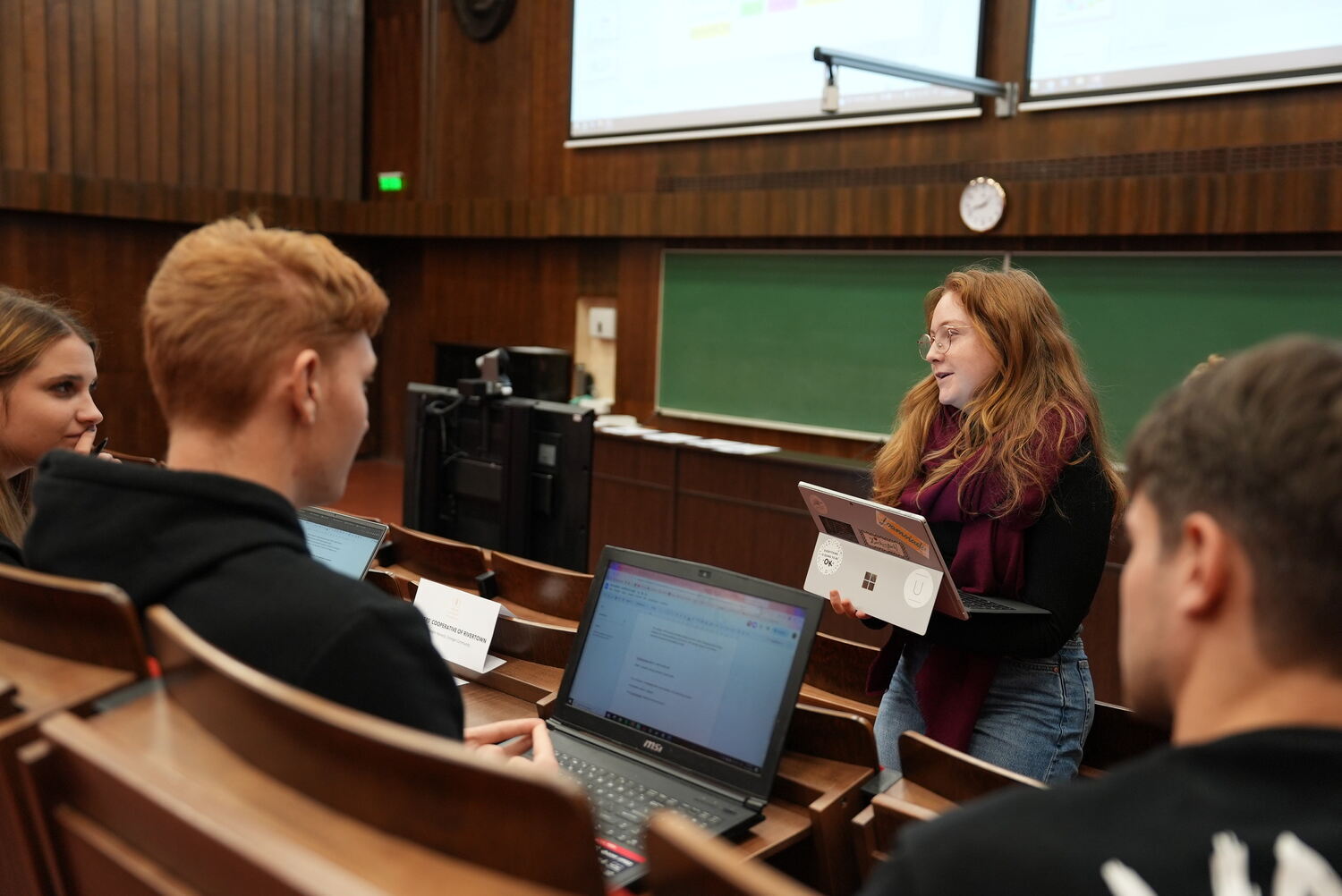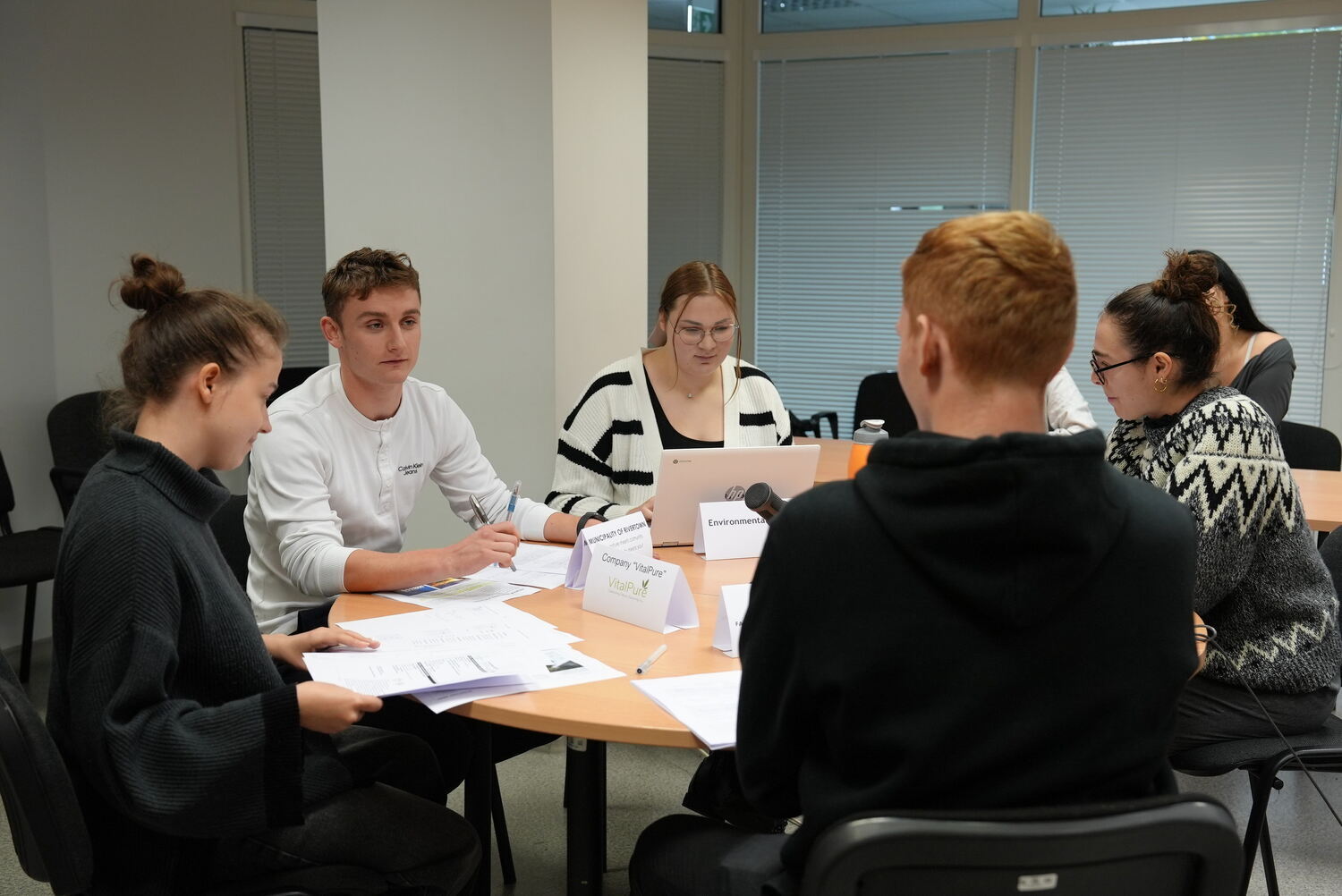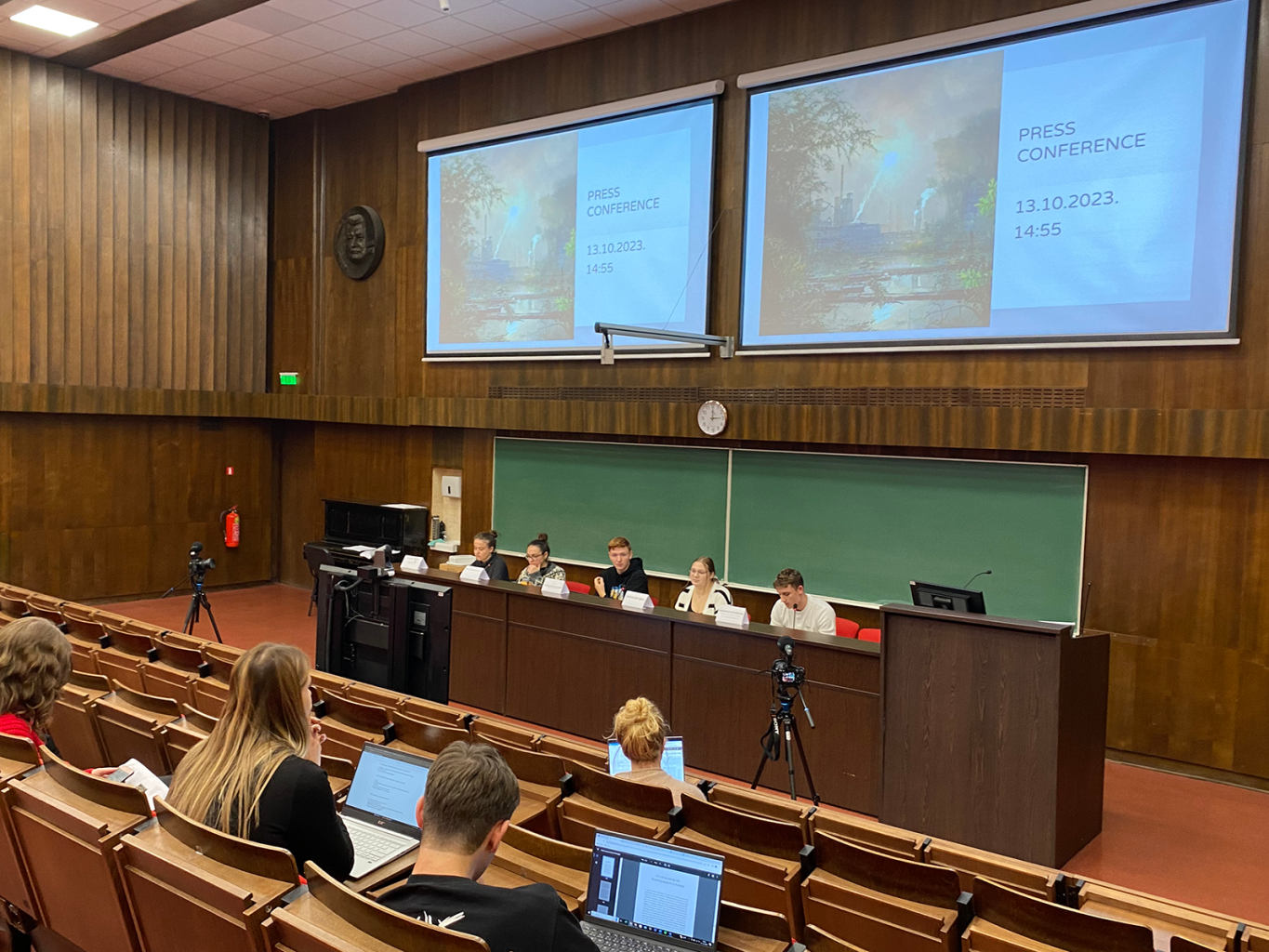Pollution crisis simulation – an opportunity for students to enhance their crisis communication skills
To enhance students' skills and knowledge concerning how to deal with high stress and crisis situations, Rīga Stradiņš University (RSU) has created the crisis communication simulation game Pollution Crisis. This interactive game allows students to combine the theoretical knowledge they have gained during lectures with practice-based learning experience.
‘Simulation provides students with the opportunity to put their knowledge into practice in a safe and non-judgmental environment. It allows them to make sure that they are ready to communicate effectively in crisis situations. At the same time, it strengthens cooperation, team management and leadership skills, as well as the ability to convey a clear message to target audiences. This is very important for every institution and organisation in the information age,’ says Lāsma Šķestere, co-creator of the game and a lecturer and researcher at the RSU Faculty of Communication.


The game simulates a sudden pollution incident that affects the public, the municipality, and businesses. Students take on the roles of various employees from different organisations involved in the crisis and have to try to find the best possible solutions under highly uncertain conditions. The simulation also takes a number of unexpected turns, forcing participants to revise their communication strategies and adapt them to the changing situation and expectations of the target audience.
The events of the last few weeks, when threatening emails were sent to many Latvian educational institutions, have highlighted a significant trend: even when state and municipal educational institutions have crisis plans in place, their communication has faltered. Of course, there were educational institutions that acted in accordance with the recommendations of the State Police, but other institutions failed to forward the information in a timely enough manner to pupils, students, teaching staff, and parents about what had happened and what to do. Such situations should not be tolerated.
Lāsma Šķestere
Taking various potential crisis situations in public health, education or security sectors into account, developing and integrating simulations like this into the study process is essential for enhancing students’ decision-making, communication, and cooperation skills and for promoting societal resilience in general.

Related news
 Constitutional Court and RSU agree on cooperation to strengthen legal science and researchFor Students, For PhD Students, Research, Law
Constitutional Court and RSU agree on cooperation to strengthen legal science and researchFor Students, For PhD Students, Research, Law



